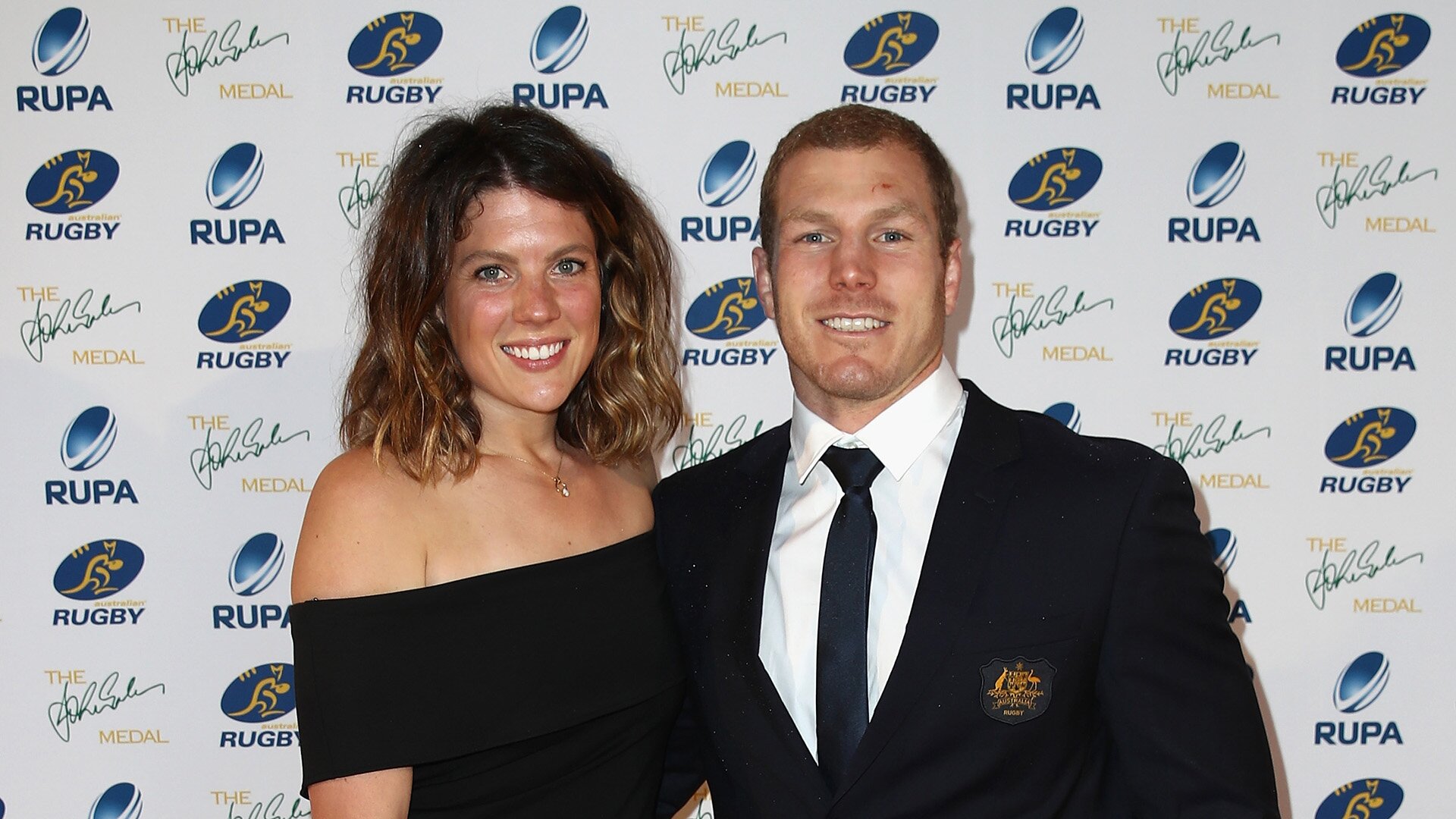David Pocock delivers on eight-year promise with 'low key' wedding

Wallabies star David Pocock finally tied on Sunday after announcing his commitment to partner Emma Palandri in 2010.
The pair held a low-key ceremony over the weekend, finally marrying after pledging not to wed until same-sex marriage was legalised in Australia.
Pocock’s wedding ceremony was a minimalists’ dream, with no dress, suit, flowers, or family present. Just Pocock, Palandri and a celebrant were present and married next to a tree at what looks like a public park.
Married my best mate yesterday ? pic.twitter.com/a4SDpbDys3
— David Pocock (@DavidPocock) December 2, 2018
30-year-old Pocock posted a series of photos of the ceremony on social media. He captioned a photo of the wedding on Instagram with “‘Married my best mate yesterday.”
“Say yes to grace! Say no to spite! Say yes to this! Say yes to you! Say yes to me! Say yes to love! Say yes to life! Say, say yes to life!,” he wrote.
“I hope we can live into the words of Rilke: ”The point of marriage is not to create a quick commonality by tearing down all boundaries; on the contrary, a good marriage Is one in which each partner appoints the other to be the guardian of his solitude, and thus they show each other the greatest possible trust.
“A merging of two people is an impossibility, and where it seems to exist, it is a hemming-in, a mutual consent that robs one party or both parties of their fullest freedom and development.
“But once the realisation is accepted that even between the closest people infinite distances exist, a marvelous living side-by-side can grow up for them, if they succeed in loving the expanse between them, which gives them the possibility of always seeing each other as a whole and before an immense sky.”
Fans on social media praised Pocock and thanked him for keeping his word and showing support for the LGBTQ community. Same-sex marriage was legalised in Australia late last year.
Earlier in the year Pocock said he and Palandri would have a small ceremony after the legalisation of same-sex marriage.
“Whatever we do, I’m sure it will be low key,” he said.
Pocock added that the decision to not get married in 2010 was a personal stand.
“We’ve chatted about it. At the time in 2010 we had a little ceremony with family and friends, but decided we didn’t want to sign anything our friends couldn’t,” Pocock told Fairfax.
“It’s kind of just been a personal stand and we’ll see what happens, we’ll organise something low key. There’s plenty of time to sort of all of that out.
“Now the [same-sex marriage debate] is done, it’s a good thing. I think everyone should be grateful to the activists and LGBTI folk who made this happen. I really do think it makes our society better going forward.
“There’s a lot of challenges, but hopefully [Australia] won’t be so slow on some of the other big things that are long overdue with being looked at and discussed.”
In 2017 Pocock expressed his support of same-sex marriage and made note of the fact that sport plays an important role in social change.
“Sport is at its best when it’s challenging society to become more inclusive. It plays such a central role in many people’s lives and can help play a big role in moving society forward,” Pocock said.
“It is great to see that the majority of Australians, particularly fans of rugby, believe it was the right thing for sports bodies like the ARU to publicly support marriage equality.”
In other news:





























